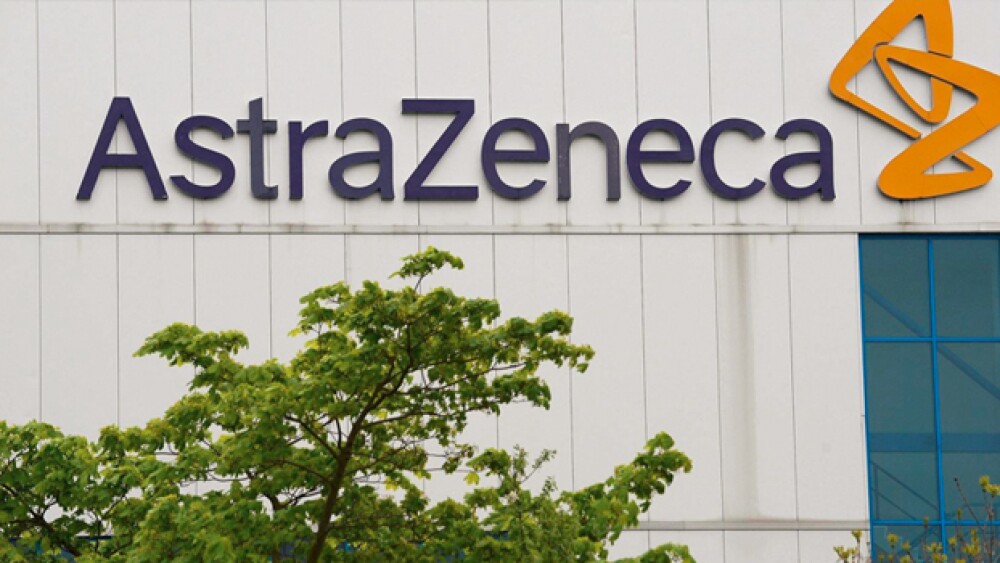AstraZeneca recently reported positive interim data from clinical trials of two, and potentially a third, of its drugs for cancer.
AstraZeneca recently reported positive interim data from clinical trials of two, and potentially a third, of its drugs for cancer. As promising as that data looks, they will face an increasingly complicated and competitive market for both checkpoint inhibitors and BTK inhibitors. Here’s a look.
AstraZeneca announced a scheduled interim analysis of its Phase III CASPIAN clinical trial. The trial is evaluating Imfinzi (durvalumab) in first-line extensive-stage small cell lung cancer (SCLC). The Independent Data Monitoring Committee decided the trial had met its primary endpoint, showing statistically significant and clinically meaningful improvement in overall survival in patients receiving Imfinzi in combination with standard-of-care etoposide and platinum-based chemotherapy options compared to chemotherapy alone.
“The Phase III CASPIAN results offer new hope for patients who are facing the devastating diagnosis of small cell lung cancer, and for whom new medicines are urgently needed,” stated Jose Baselga, AstraZeneca’s executive vice president, Oncology R&D. “This is the first trial offering the flexibility of combining immunotherapy with different platinum-based regimens in small cell lung cancer, expanding treatment options.”
The trial will continue toward its final analysis of OS for the combination of dual immune checkpoint blockade with chemotherapy. The combination includes tremelimumab, an anti-CTLA4 antibody, a potential new drug, with Imfinzi, which is an anti-PDL1 antibody, with chemotherapy.
Promising for AstraZeneca, but it will be competing with Roche’s Tecentriq (atezolizumab) in combination with chemotherapies carboplatin and etoposide in the same setting, which was approved by the U.S. Food and Drug Administration (FDA) in March. Tecentriq, like Imfinzi, is a checkpoint inhibitor.
Earlier this month, AstraZeneca also reported detailed data from an interim analysis of its Phase III ASCEND trial at the European Hematology Association (EHA) Annual Congress held in Amsterdam. In it, the company showed that Calquence (acalabrutinib) significantly extended the time patients lived without disease progression in relapsed or refractory chronic lymphocytic leukemia (CLL).
Calquence is a BTK inhibitor. It has been approved already for Mantle Cell Lymphoma (MCL).
Terry Chrisomalis, writing for Seeking Alpha, noted, “This is good news, because it opens the door for AstraZeneca to significantly increase its revenue for Calquence. It won’t be easy though, because it will go up against a strong competitor in the same space.”
In the trial, 310 patients who were previously treated with chemotherapy were randomized to receive either 100 mg of Calquence by itself or a doctors’ choice of combination therapy. The combination choice was either Genentech and Biogen’s Rituxan (rituximab) plus Gilead’s Zydelig (idelalisib) or rituximab and bendamustine.
The primary endpoint was progression-free survival between Calquence and the two doctor’s choice arms. At 16.1 months, patients receiving Calquence as a monotherapy had a statistically significant improvement in PFS compared to one of the two controls arms. Also, at that time, the patients receiving Calquence hadn’t yet hit the median time without disease progression. But the control arm hit median disease progression within 16.5 months. The interpretation is that Calquence can prevent these patients from progression for a longer time.
Chrisomalis concludes that, “Data from both the ASCEND and ELEVATE-TN studies will allow AstraZeneca to file for approval of Calquence in treating patients with CLL.”
However, there’s no guarantee it will be approved, although it looks likely. But if approved, it will face competition from AbbVie and Johnson & Johnson’s Imbruvica, also a BTK inhibitor, which generated $3.6 billion in sales last year. Imbruvica has been approved for more indications, but Calquence will face an uphill battle in the marketplace for this indication.





